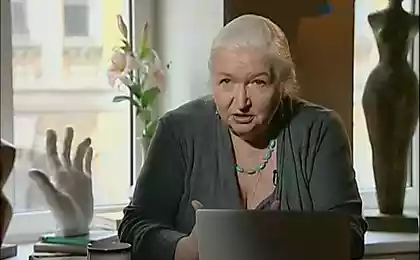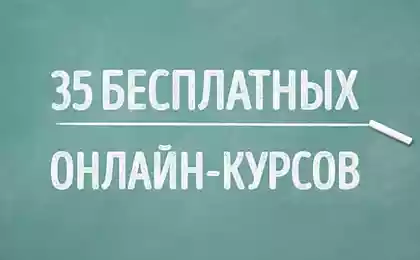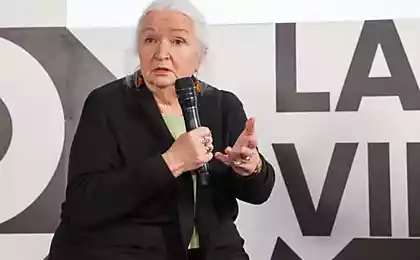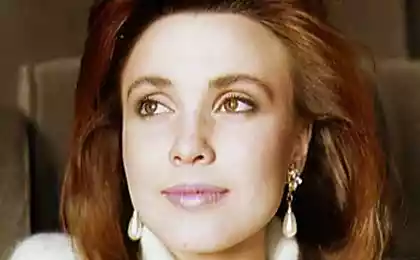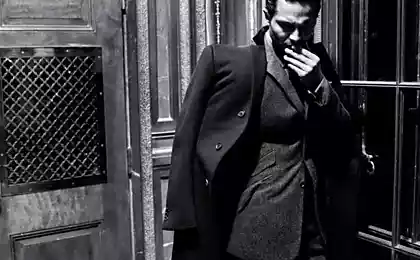188
Excerpts from lectures by Tatiana Chernihivskaya
People are in a constant cycle of self-knowledge. If you want to know more about how yours works. consciousnessOr to understand the processes taking place in your brain, then you need lectures by Tatiana Chernigovskaya. It’s hard to find a better storyteller on this topic. Neurolinguist and experimental psychologist generously shares knowledge, striking with his erudition and sense of humor.

We're in the newsroom. "Site" We listen to Tatiana Vladimirovna’s lectures and can’t help but share her most interesting thoughts with you. Today we will talk about consciousness, the brain and how to understand yourself.
Consciousness and personality: We are our brain. And it determines how we live, how our society works, how we get sick or not, how we learn, what we create. It's all because of our brain, it's not the elbow doing it, it's the brain. That is why we should be familiar with him, says Tatiana Chernihivskaya at one of her lectures.
801794
The scientist always emphasizes that it is necessary to study the processes in the brain not only scientists, but also ordinary people. After all, it helps us to better understand how we are made, why certain things happen or do not happen.
We often wonder what consciousness is and how it relates to the soul. Tatiana Chernihivskaya is happy to answer this question: “The soul is not a scientific concept and does not fit in here.” I'm not saying she doesn't exist. I am Orthodox and the last thing I wish for myself is to become an atheist. But science does not deal with such things as the search for the soul.”
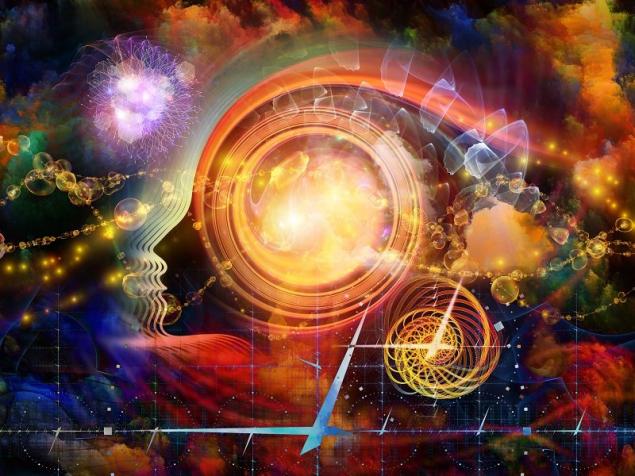
From a scientific point of view, the equivalent of the soul can be called consciousness, but with a great stretch. Still, Tatiana Vladimirovna believes that these are different things. In the world there is no agreement on what is considered consciousness. For example, in Buddhism it is believed that consciousness is endowed with absolutely all creatures, that it arose together with the universe.
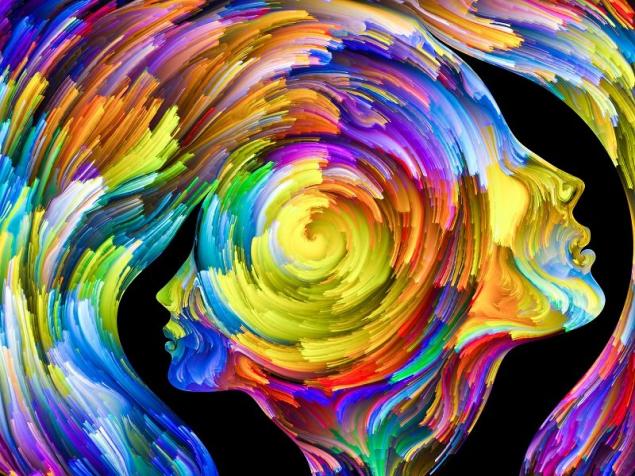
This word means completely different things: the ability to perceive something, to call it, to be aware of your own actions; a state outside of sleep or anesthesia; the ability to build a model of behavior. These are all different things.
We still don't know where consciousness is. Tatiana Chernihivskaya says: The most unpleasant thing is that there is no agreement not only between representatives of different sciences, but also within one school and one science. Therefore, the question of how to be with the soul and how to be with consciousness, and where they are in the brain, you can only spread your hands. We are at such a stage of scientific thought that no consensus can be reached — a crisis.”

All you have to do here is hope for a genius who will explain everything. All that remains is to argue and argue. And perhaps we will not dwell only on the reasoning of human consciousness. In her lectures, Tatiana often talks about the digital age and how it changes people’s lives.

The development of machines makes you think about whether there is consciousness in a computer or conventional artificial intelligence. Tatiana Vladimirovna also has some thoughts on this subject: “How should I know if they have consciousness or not?” He's acting like a man. We behave like perfect, finely crafted programs.
Can you prove to me that I'm not a program, or can I prove that you're not a program? No, we can't. Now turn this situation around. That I myself believe that I have consciousness is no more than part of this very program.
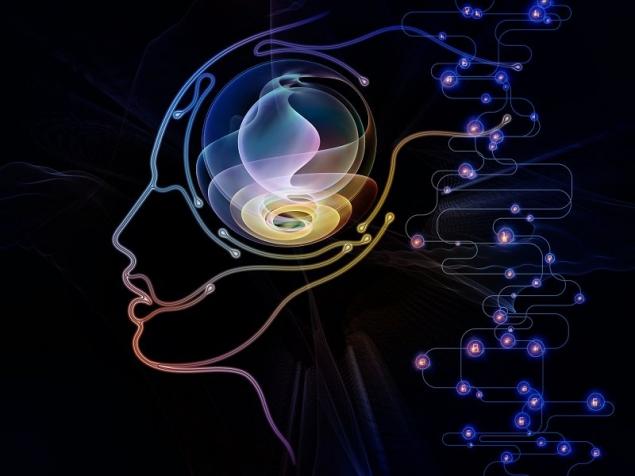
If you are interested to know more, you can listen to Tatiana Vladimirovna's lecture. We learned a lot of interesting things.
about:blank
Of course, we never figured out what consciousness is or where it actually is. But they got food for thought. Who we are, where we are psycheHow can we influence it and can we influence it at all? We still have to think about it.

We're in the newsroom. "Site" We listen to Tatiana Vladimirovna’s lectures and can’t help but share her most interesting thoughts with you. Today we will talk about consciousness, the brain and how to understand yourself.
Consciousness and personality: We are our brain. And it determines how we live, how our society works, how we get sick or not, how we learn, what we create. It's all because of our brain, it's not the elbow doing it, it's the brain. That is why we should be familiar with him, says Tatiana Chernihivskaya at one of her lectures.
801794
The scientist always emphasizes that it is necessary to study the processes in the brain not only scientists, but also ordinary people. After all, it helps us to better understand how we are made, why certain things happen or do not happen.
We often wonder what consciousness is and how it relates to the soul. Tatiana Chernihivskaya is happy to answer this question: “The soul is not a scientific concept and does not fit in here.” I'm not saying she doesn't exist. I am Orthodox and the last thing I wish for myself is to become an atheist. But science does not deal with such things as the search for the soul.”

From a scientific point of view, the equivalent of the soul can be called consciousness, but with a great stretch. Still, Tatiana Vladimirovna believes that these are different things. In the world there is no agreement on what is considered consciousness. For example, in Buddhism it is believed that consciousness is endowed with absolutely all creatures, that it arose together with the universe.

This word means completely different things: the ability to perceive something, to call it, to be aware of your own actions; a state outside of sleep or anesthesia; the ability to build a model of behavior. These are all different things.
We still don't know where consciousness is. Tatiana Chernihivskaya says: The most unpleasant thing is that there is no agreement not only between representatives of different sciences, but also within one school and one science. Therefore, the question of how to be with the soul and how to be with consciousness, and where they are in the brain, you can only spread your hands. We are at such a stage of scientific thought that no consensus can be reached — a crisis.”

All you have to do here is hope for a genius who will explain everything. All that remains is to argue and argue. And perhaps we will not dwell only on the reasoning of human consciousness. In her lectures, Tatiana often talks about the digital age and how it changes people’s lives.

The development of machines makes you think about whether there is consciousness in a computer or conventional artificial intelligence. Tatiana Vladimirovna also has some thoughts on this subject: “How should I know if they have consciousness or not?” He's acting like a man. We behave like perfect, finely crafted programs.
Can you prove to me that I'm not a program, or can I prove that you're not a program? No, we can't. Now turn this situation around. That I myself believe that I have consciousness is no more than part of this very program.

If you are interested to know more, you can listen to Tatiana Vladimirovna's lecture. We learned a lot of interesting things.
about:blank
Of course, we never figured out what consciousness is or where it actually is. But they got food for thought. Who we are, where we are psycheHow can we influence it and can we influence it at all? We still have to think about it.



